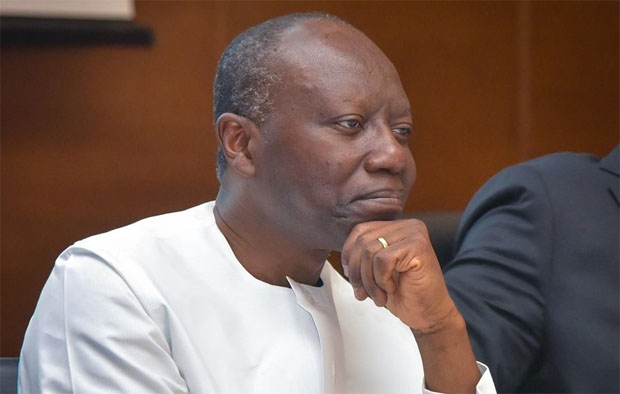Ken Ofori-Atta
Fitch Ratings downgraded Ghana’s long-term local- and foreign-currency issuer default ratings (IDRs) to ‘CC’, from ‘CCC’, last Friday.
The latest downgrade comes barely a month after the rating agency reduced the country’s credit rating from B- to CCC.
It indicated that the agency typically does not assign outlooks to issuers with a rating of ‘CCC’ or below.
Drivers
Fitch Ratings explained that the downgrade reflects the increased likelihood that Ghana will pursue a debt restructuring given mounting financing stress, with surging interest costs on domestic debt and a prolonged lack of access to Eurobond markets.
“There is a high likelihood that the IMF support programme currently being negotiated will require some form of debt treatment due to the climbing interest costs and structurally low revenue as a percentage of GDP,” it argued.
The agency added, “We believe this will be in the form of a debt exchange and will qualify as a distressed debt exchange under our criteria. The government has not confirmed or denied press reports that Ghana is preparing to negotiate a restructuring.”
It said interest costs on external debt are lower than for domestic debt and near-term external debt amortisations appear manageable.
It pointed out, however, that it believed there could be an incentive to spread a debt restructuring burden across domestic and external creditors, “and therefore do not have a strong basis to differentiate between Foreign- and Local-Currency ratings at this time.”
High Debt Service
Fitch noted that interest costs reached 47.5% of revenue in 2021 and 54% in first half of 2022, intimating that interest payments on domestic debt comprise around 75% of total interest costs.
“This reflects high yields on domestic debt, which have climbed following a 34% year on year spike in inflation as at August 2022 and monetary tightening, with the Bank of Ghana hiking its policy rate to 22.0%, from 14.5% in February.
Yields on the 91-day treasury bill reached 27.0% in August, up from 12.5% in August 2021, and 10-year yields have spiked to above 35% in September, from around 20% in first quarter of 2022, the agency said.
Limited Access
It stated that the agency expected external financing access to stay limited until at least an IMF programme is agreed, as Ghana is likely to remain locked out of Eurobond markets, which had been the country’s regular source of external financing.
The government obtained a USD750 million term loan from African Export-Import Bank (BBB/Stable) this year and USD250 million in syndicated loans from global commercial banks.
It can also use its sinking fund. We estimate Ghana faces around USD3 billion of external debt service costs in 2023, including amortisation and interest, the agency suggested.
Reserve Pressure
According to Fitch, it expects persistent downward reserve pressure in the absence of an IMF programme.
“Official reserve assets fell to USD7.3 billion in June, from USD9.8 billion in 2021 and gross international reserves, excluding oil funds and encumbered assets, totalled USD7.1 billion in March, the latest figure available.
“The exchange rate has weakened by 40% year-to-date against the US dollar, reaching GH¢10:USD1 in September, potentially made worse by the drop in non-resident investment in local-currency debt.
“Non-resident holdings were GH¢23.1 billion at end-August, or 4% of Fitch-forecast 2022 GDP,” it added.
IMF Programme
It said the reverse of the government’s “long-standing position against seeking IMF support in July 2022” was positive, noting, “We believe a deal with the IMF is likely within the next six months.”
“Ghana has indicated it could request USD2 billion-3 billion and the programme could unlock budget support from other official lenders. However, we believe a restructuring will be deemed necessary, with local-currency debt treatment potentially included prior to IMF approval, as the IMF is unable to provide financing where it assesses a country’s debt to be unsustainable.
“The most recent IMF debt sustainability analysis, conducted in 2021, found Ghana at a high risk of debt distress and vulnerable to shock to market access and high debt servicing costs. Interest costs have risen substantially since then,” the agency stated.
By Ernest Kofi Adu

